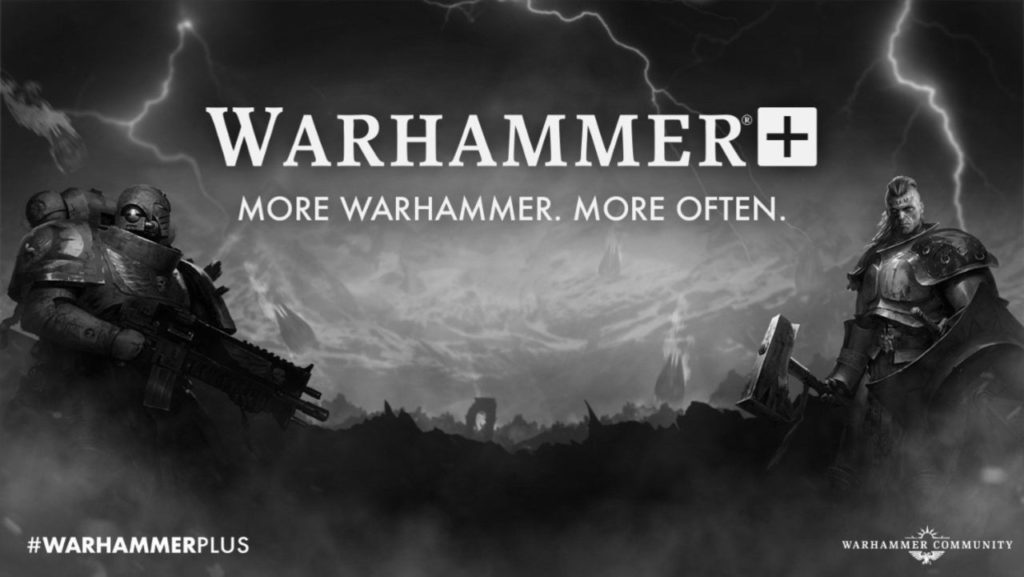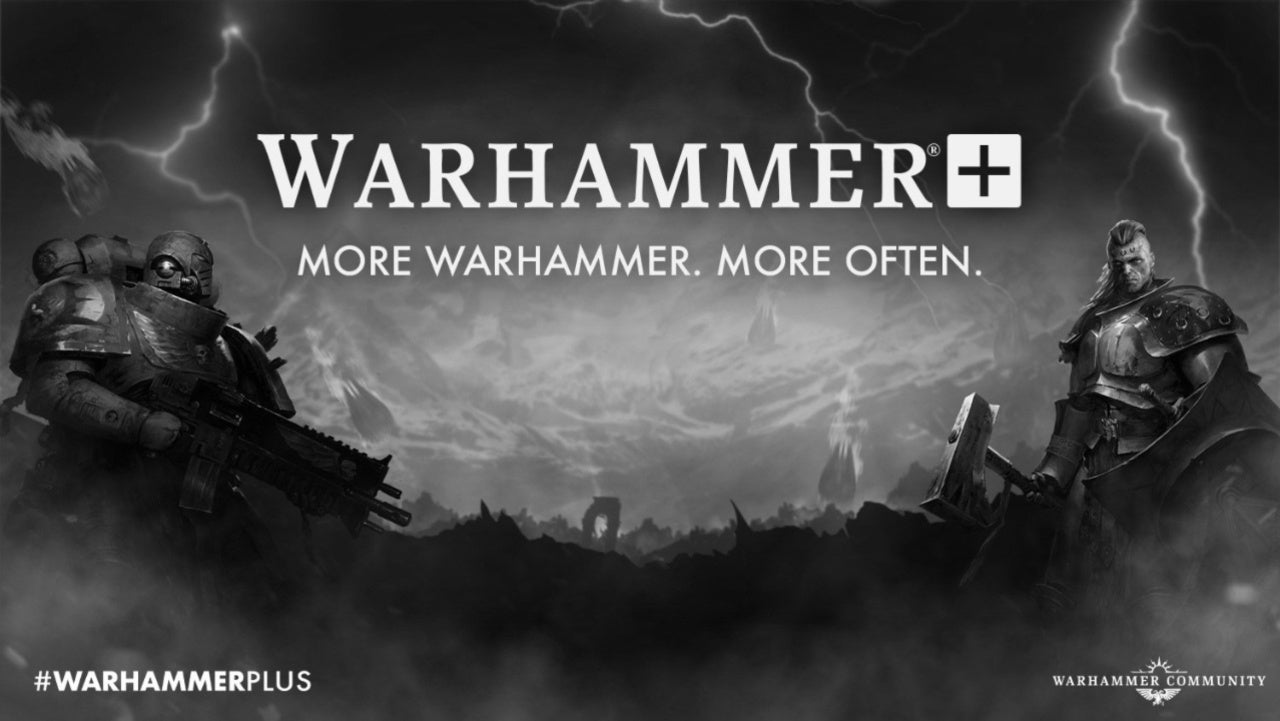
As almost all of you will have already heard, GW recently updated its intellectual property guidelines. In this document, GW clearly states that “individuals must not create fan films or animations based on our settings and characters. These are only to be created under licence from Games Workshop.”
The overall community response to this update has been, to put it mildly, rather negative.
And I can certainly understand these concerns. Indeed, I think that most people can appreciate just how frustrating this must be for many fans and, more importantly, for many creators who work in this space.
I really can’t imagine just how difficult it would be to spend dozens and dozens of hours working on an animated project that is set in the 40k universe and that uses 40k characters only to have GW inform you that, under no uncertain terms, your project must be scrapped.
But there is another side to this story. Ask yourself the following question: when it comes to GW’s intellectual property, does GW have a choice in the matter?
I don’t ask this question to be facetious. I think it is a very thorny issue.
I’m not going to get in to the details of IP law — it will surprise no one to learn that I would be entirely unqualified to do so — but for the sake of this article all that we need acknowledge is that it exists and that GW is subject to it.
There are, of course, many valid and appropriate criticisms of the UK legislation surrounding this area. Again, I am entirely unqualified to discuss these issues.
GW, then, has a right to protect its IP, and I would argue that if GW wants to maintain its own standards of quality, it has little choice but to produce animated films in-house or grant licence to creators who meet the appropriate standards.
Almost everyone reading this will have seen Astartes before it was taken off YouTube. There is no doubt: Astartes was an excellent project. And I very much hope and presume that this quality will remain now that GW has brought it in-house.
However, not all fan-made animations will maintain such a high standard. Indeed, many fan-made animations will fall short of the standards that GW sets for its content.
If quality is the main issue for GW, the company has two choices: in-house production or licencing.
I want to briefly mention another issue here. I have heard anecdotally that if a company does not defend its IP, it could be in danger of losing its IP rights entirely. While I could see how such an argument could be plausible, I want to again make clear that I have no expertise in this area. This claim might be true; it might not be true. I don’t know. For now, let’s put this point to one side.

Let’s take the least charitable reading of the situation: individuals in the community were making money from GW’s IP, and GW wanted a slice of the pie.
I have absolutely no doubt that this was at least part of the overall consideration. Money is a powerful motivator. If GW doesn’t make money, GW goes out of business. Everything GW does, to one extent or another, is in the service of the goal of making money.
But was money the sole motivating factor behind GW’s decision to change their intellectual property guidelines? It’s impossible to know for sure.
The release of Warhammer Plus would have certainly played a part in the decision. With GW building their own streaming platform, it stands to reason that less competition from YouTube would help get things off the ground. Better still, bringing content from YouTube, where viewers can watch for free, to Warhammer Plus, where viewers must pay, seems to be a sensible business decision.
And yet, Warhammer Plus will face plenty of competition from YouTube. While YouTube will no longer host fictional content set in the 40k universe, there is still plenty of Warhammer-adjacent content on the platform. The best painting tutorials and the best battle reports are on YouTube, and we know that Warhammer Plus will feature this kind of content.
And while Warhammer Plus won’t feature the same kind of content as the mainstream streaming platforms, it will still compete for its viewers’ time. It will be tricky enough to get fans away from the established platforms without strong content YouTube.
This is all to say that at least GW’s decision was understandable. I don’t know if it was the correct one. If I had to choose, I would say that it was, but I can still understand why many people are unhappy with the decision.
So where does this leave us? Overall, I think that if Warhammer Plus is a success — and the content that GW brought over to the platform from YouTube remains strong — then this issue will recede in importance over time. But if Warhammer Plus isn’t a success, I could see this issue sticking around for longer than GW would have liked.
And that’s the real issue, I think. GW needs to produce plenty of quality, watchable content that brings more people into the hobby. I’m still up in the air on whether I’ll watch the content on the platform. In all likelihood, I’ll pay for a month and see how it goes. However, I do have a feeling that much of the content isn’t going to be up to scratch. I’d love to be proved wrong, however, and I’m certainly going to give the platform and the content its due.
Fan-made content was always going to put GW in a tricky situation. If pressed, I probably would’ve done the same thing, and I’m certainly not going to hold a grudge if a company takes appropriate action to protect its property.
And remember, Frontline Gaming sells gaming products at a discount, every day in their webcart!




Unless Warhammer Plus is putting out netflix-tier content then I can safely say that I will have zero interest paying for a subscription service when I can find equal or better quality content for free elsewhere.
Dunno. How do other companies do it? Can I make and upload a fan-made short with Mickey Mouse?
IP is a difficult matter within the USA, let alone in the other 216 countries and the separate world that youtube etal seem to think they belong to!! Many of my US colleagues release limited edition entertainment products (magic and puppets) and a week later some-one in China releases an identical looking product that’s cheaper and inferior. I chose to walk away from this by publishing any routines / props in a limited edition magazine so my friends can use them – but the general world of eBay etal know nothing about them.
Many of the people criticizing don’t understand a few key issues.
(1) Before Covid-19, you paid $4.99 a month for Warhammer Tv on twitch (or used your free amazon account);
(2) That’s around the same as many subscription services including Duncan Rhodes and Tabletop Tactics from the UK. This new service will be the same – so about a pint a month;
(3) Licensing had a show for a hour every month – it detailed the licensing agreements for video-games, clothing. Quality and sufficient quantity were key;
(4) Warhammer Tv is currently only six hours a week – Warhammer Plus will be about the same. So around 25 hours a month for $4.99;
(5) GW deal with their IP in many different ways – hence they don’t sell 3rd party items anymore(since the late 1980s); don’t allow 3rd party miniatures; DO allow 3rd party paints and bases:
(6) there has been an explosion of 3rd party people using the unlicensed IP of GW. Last year, GW forced the free codexes to be removed from 4chan and many other places. GW have taken on board the best 3rd party workers.eg- Mike Brandt (NOVA) now runs the US official tournaments; painters work for GW;
(7) youTube has changed their policies over the past two years – now they deal directly with the compaines making them money. They are quick to take down unlicensed products using their logos and TMvocabulary. That’s why SM are Astartes and Orcs are Orruks and Orks;
(8) look at what LotR does – or Disney – or Marvel. How many 3rd party “fan” pieces are there on youtube??
(9) completing the circle -it’s better to deal with the distributors, than go for an expensive law case when US and UK/European laws/fees are so different and expensive.
Old company don’t understand how digital world work, part CXXIV.
The thing is, a big part of why Warhammer 40k is so much in everyone head is because of fan works. It’s the main reason why people know W40K more than starcraft or Starship troopers, who have universe equally good, but don’t have as much collective awareness. Working against theses consequently isn’t smart from GW. It’s also quite insidious because the negative effect, if they happen, won’t happen until quite a long time, so we will never be able to do better than educated guesswork on whether it had an influence.
That being said, small companies are much more dependant on fan works than big one ; see the average indie anime/comic studio vs Disney. I think GW is clearly more on the smaller side, but the release of warhammer TV probably mean they think they are a big name.
The other problem is of course that the W40K universe is so intentionally bland and featureless that obvious copy with different names will be extremely easy to do. They try that with astartes and orruk and whatnot, but it mean the actual copy are easier to find than the official work, because people don’t type “astarte” in youtube.
Warhammer Tv started in the summer of 2016 – it’s now five years old on Twitch and removed all payments during Covid-19 – allowing you free access to 1000s of hours of content. I don’t know any other wargames provider that did that. Those podcasters are still get rich/paying bills. Some even extended their team or started an entirely new ‘cast.
Warhammer PLUS – is additional content for $4.99 a month.
I am an intellectual property attorney with a global law firm. GW’s decision to ban fan films and animations based on its IP makes good legal and business sense for several reasons.
(1) As noted by Mr. Jenkins, GW has a vested interest in protecting the quality of content associated with its IP. While Astartes was a high quality work, there are many other creations that might reflect poorly on the brand or promote a message that GW does not want associated with its company.
(2) Mr. Jenkins is correct that, for certain types of intellectual property, an owner that fails to enforce its rights risk losing those rights. This is particularly true for trademarks. A trademark serves to identify the source of goods or services, and must be substantially exclusively used by the owner. Put another way, GW considers HORUS HERESY to be its trademark as used in connection with novels, downloadable and non-downloadable electronic games, tabletop hobby battle games, and other goods. If dozens of other people offer games, fan fiction stories, films, animations, or other goods or services using the same trademark, customers may become confused as to which HORUS HERESY goods or services originate from GW and which do not. When a word, phase, or symbol ceases to identify the source of goods or services, it ceases to function as a trademark and the company’s legal rights in the term are lost. As an example, ESCALATOR was a trademark of the Otis Elevator Co. used with moving staircases. People began using the mark as the generic term for any moving staircase regardless of the manufacturer, and Otis eventually lost its exclusive rights to the mark in the 1950s. In a similar vein, GW must maintain control over use of its trademarks else it risks losing its rights.
(3) Banning fan-created works protects GW’s own artistic freedom. Let’s say, for example, that a fan made an animation depicting the World Eaters invading the 500 Worlds, Kharn slaying Marneus Calgar, then Uriel Ventris killing Kharn and becoming the next chapter master of the Ultramarines. Let’s also say that GW was considering this same storyline and issues an expansion with the same details. The author of the fan animation may sue GW, claiming that the new expansion infringes his/her copyright in the fan animation. GW would likely suffer bad publicity and be obligated to defend itself in court or settle with the fan to resolve the issue. Many disputes are settled even if meritless, simply because it is less expensive to pay a plaintiff to withdraw their claim than to prevail in court, particularly if the plaintiff (e.g., the fan) is not wealthy and is unable to reimburse the defendant (e.g., GW) for its costs incurred in defending against the claim. By banning fan-made animations using GW’s IP, GW can limit the number of fan-made works that may co-opt storylines that GW may want to explore on its own and reduce its own exposure to potential litigation.
(4) As noted by Mr. Jenkins, GW likely wishes to capture revenue streams relying upon its IP. High quality fan films and fan animations would compete for the same audience that GW is seeking to capture with its new Warhammer+ offering. By making Warhammer+ the sole source for Warhammer-related films and animation, GW may be able to capture more customers than if it were only one of several sources of similar content.
I enjoyed watching Astartes and, as a fan, I would be sad to see it disappear entirely from YouTube. However, as an attorney, GW’s position regarding fan-made works makes both legal and business sense. Frankly, I’m a bit surprised that GW didn’t go further and ban fan fiction stories as well as animations and films to further limit the number of fan-made storylines.
I think a large reason they didnt go after fan fiction is because part of the selling point of the universe is that it is so large that anything and everything can happen SOMEWHERE within the universe, they actively encourage you to write stories, or draw art of the people involved.
I think something like a fan animation is a completely different scale of effort and involvement and that it would be hard to argue someone spent that much time solely for the purpose of fleshing out their army.
Thanks for the insight @polyproline.
One thing that I noticed was that the guidelines seemed to be rather focused on settings and characters IE: lore, stories images and the like. There was some reference made to counterfeit goods but almost nothing in reference to the games themselves.
As a fan of actually playing Warhammer I’m sitting here wondering – is a similar IP defense possible when it comes to things like battle reports and streamed games? I know that game mechanics fall into a strange void of copyright law, but it’s hard to imagine playing 40K without at least mentioning a ton of trademarks. Furthermore is it possible that the presentation of a painted miniature itself could be an “infringement.” What more are painted models than depictions of characters in a setting?
I am by no means chicken Little here, but I do wonder for the cottage industry of content producers and what this shift in policy could be indicative of.
Also fwiw there is a very serious difference in audience between what the community produces in general and the best animations and lore based podcasts and shows. I get the sense that someone probably sorted “Warhammer” results by views in YouTube and realized there was money on the table. I don’t know if they would be as concerned about battle report producers earning a respectable 6 figure view count so much as the 7 figure ones animations and lore get